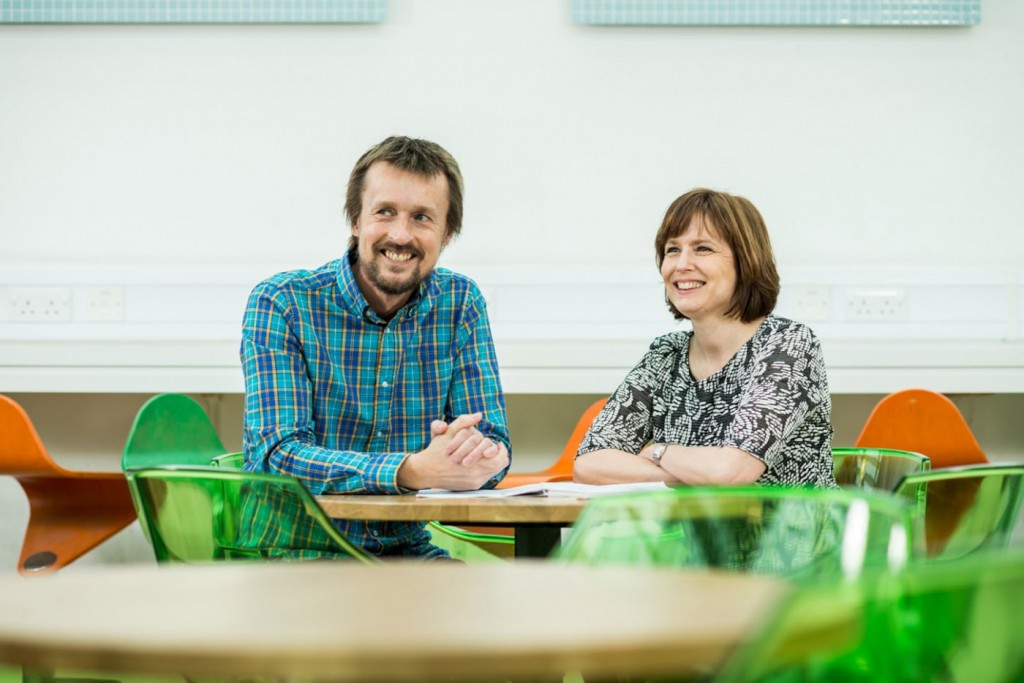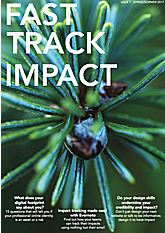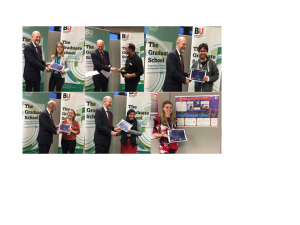
In the first of our weekly spotlights, Richard Hawkesford, CEO of the charity Help-in, tells us more about his organisation and what he hopes to achieve by working with the Student Project Bank.
Help-in will be the first social media platform of its kind: a non-profit social media platform that will connect anyone who needs help to anyone anywhere in the world that is willing to give it. I want to offer the opportunity for BU students to help me build this platform and to become part of the Help-in vision.
I came up with the Help-in idea while I was travelling. I wanted to volunteer as part of my experience but found the internet to be a frustrating place to find opportunities that didn’t cost the Earth. In fact, on talking to others, an overwhelming majority agreed the whole process should be easier.
60% spent 10-50 hours looking online and 15% spent over 50 hours. Some paid large amounts of money with no transparency about where the money went, and a quarter gave up because they found it so time consuming or difficult to find anything online.
I never want anyone to give up when they have good intentions to help others.
When I was able to volunteer I realised it was equally as frustrating for the grassroots good causes I wanted to help. They spend up to half their working week looking for volunteers, funding and other help.
I have faith in humanity, but I don´t always think we’re given the right tools to make the most of our giving nature. This is where the Help-in idea evolved.
I want to live in a world where people are able to ask for help, and be connected to people all over the world that are willing to give it out of love and compassion.
Do you want to get involved? The following projects are available:
SPB044: Crowdfunding feasibility study and campaign design for charities
Help connect millions of people to the help they need when they need it and allow millions to offer their help to those less fortunate or in need. Help-in is a charity that aims to create a new social media platform designed to increase volunteering both hands on and virtually. Carry out a feasibility study into crowdfunding models for charitable organisations and use your findings to design a three week campaign with a soft launch. There will be the opportunity to implement the campaign if desired.
SPB045: Social media marketing and management plan for a local charity
Help connect millions of people to the help they need when they need it and allow millions to offer their help to those less fortunate or in need. Help-in is a charity that aims to create a new social media platform designed to increase volunteering both hands on and virtually. Design a social media marketing plan for a crowdfunding campaign and create a management plan for the marketing plan.
SPB046: Brand development for Help-in
Help connect millions of people to the help they need when they need it and allow millions to offer their help to those less fortunate or in need. Help-in is a charity that aims to create a new social media platform designed to increase volunteering both hands on and virtually. Work with Help-in to develop their brand. This will be used to influence the look and feel of their platform and across social media, the website and any printed materials.
SPB047: Social media platform prototype development for Help-in
Help connect millions of people to the help they need when they need it and allow millions to offer their help to those less fortunate or in need. Help-in is a charity that aims to create a new social media platform designed to increase volunteering both hands on and virtually. Work with Help-in to develop the above social media platform. All aspects must be scalable to cope with additions to details, projects, tick boxes and ultimately users. The Platform will be global, so there is a need to search for companies or project types in any part of the world.
 In December, Prof Mark Reed,
In December, Prof Mark Reed,  On Wednesday 29th March, the Writing Academy will be hosting a Lunchbyte session with Matthew Bennett. During the session Matthew will talk about his personal publishing experience, his approaches to research and writing, his tips on developing a publication strategy and working with co-authors, reviewers and editors. He will talk about all types of publishing from journal articles, to books via edited compilations. Drawing on personal experience, he will also focus on how you target high impact journals.
On Wednesday 29th March, the Writing Academy will be hosting a Lunchbyte session with Matthew Bennett. During the session Matthew will talk about his personal publishing experience, his approaches to research and writing, his tips on developing a publication strategy and working with co-authors, reviewers and editors. He will talk about all types of publishing from journal articles, to books via edited compilations. Drawing on personal experience, he will also focus on how you target high impact journals.










 RKEO have hosted two funder visits in the past three weeks (Interreg and Medical Research Council). Both funders highlighted the ‘So what?’ principle in terms of research ideas, i.e. what is the consequence of your work; who can benefit from your work in the long-term and what can be done to increase the chances of the work reaching those beneficiaries. Even if your proposal doesn’t directly address economic or societal impact you should be able to explain the pathway that links your work to – using the example of MRC – improving human health.
RKEO have hosted two funder visits in the past three weeks (Interreg and Medical Research Council). Both funders highlighted the ‘So what?’ principle in terms of research ideas, i.e. what is the consequence of your work; who can benefit from your work in the long-term and what can be done to increase the chances of the work reaching those beneficiaries. Even if your proposal doesn’t directly address economic or societal impact you should be able to explain the pathway that links your work to – using the example of MRC – improving human health. There are a vast number of resources available on strengthening your research proposals and developing impact. Most funders will have guidance on impact, for example, section 2.2.5 of the
There are a vast number of resources available on strengthening your research proposals and developing impact. Most funders will have guidance on impact, for example, section 2.2.5 of the  Last year, RKEO revised and re-published the BU guide to full Economic Costing, know as fEC (which some people choose to pronounce in a ‘Father Jack’ style). The full guide can be found on the
Last year, RKEO revised and re-published the BU guide to full Economic Costing, know as fEC (which some people choose to pronounce in a ‘Father Jack’ style). The full guide can be found on the 










 UK Turing Scheme: My student mobility programme in Nepal
UK Turing Scheme: My student mobility programme in Nepal Bournemouth University psychologists publish new book
Bournemouth University psychologists publish new book Connecting Research with Practice: FoodMAPP Secondment in Austria and France
Connecting Research with Practice: FoodMAPP Secondment in Austria and France Health promotion paper read 8,000 times
Health promotion paper read 8,000 times The Beautiful Work Challenge: On Birth
The Beautiful Work Challenge: On Birth MSCA Postdoctoral Fellowships 2025 Call
MSCA Postdoctoral Fellowships 2025 Call ERC Advanced Grant 2025 Webinar
ERC Advanced Grant 2025 Webinar Horizon Europe Work Programme 2025 Published
Horizon Europe Work Programme 2025 Published Horizon Europe 2025 Work Programme pre-Published
Horizon Europe 2025 Work Programme pre-Published Update on UKRO services
Update on UKRO services European research project exploring use of ‘virtual twins’ to better manage metabolic associated fatty liver disease
European research project exploring use of ‘virtual twins’ to better manage metabolic associated fatty liver disease